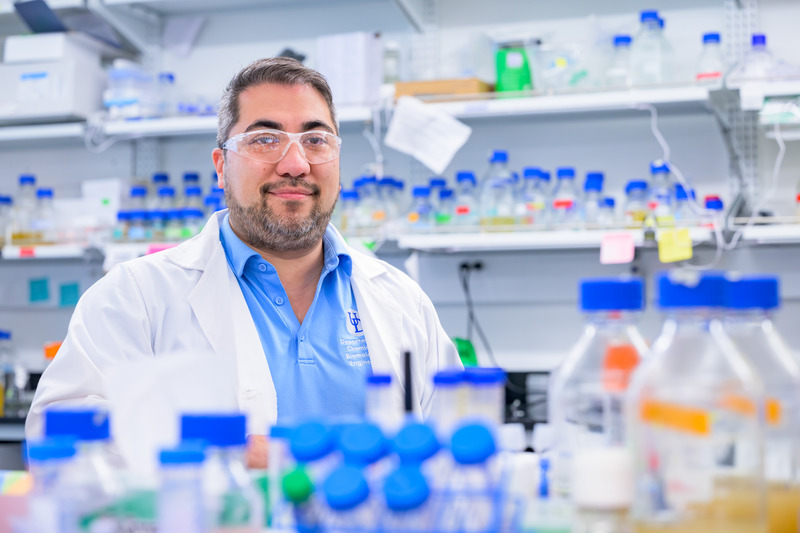


Spurring biotechnology innovation
Photo by Evan Krape August 29, 2024
UD scoping a biofoundry with NSF support
Biotechnology has proven to be a real problem-solver for some big challenges in our lives — from producing the insulin that people with diabetes need to regulate their blood sugar to manufacturing sustainable chemicals.
And now the University of Delaware is poised to take the tools of biotechnology to the next level for researchers in the Northeast and Mid-Atlantic regions.
UD is one of five institutions that the U.S. National Science Foundation is funding to advance a network of biofoundries, where researchers will be able to rapidly design, create, test and streamline tools and products that will accelerate research and workforce training for the emerging “bioeconomy” based on sustainable, renewable resources.
Mark Blenner, Thomas and Kipp Gutshall Career Development Associate Professor in UD’s Department of Chemical and Biomolecular Engineering and affiliated faculty member with the Microbiology Graduate Program, is the principal investigator on the project, which involves researchers at UD, Penn State and Worcester Polytechnic Institute.
The recipients of a $2 million grant from NSF, the UD-led team is creating the NSF Center for Robust, Equitable and Accessible Technology (CREATE) for Next-Generation BioFoundries to democratize access to the tools of modern biotechnology. The project team aims to provide users from academia and industry with automation and design tools to rapidly produce proteins, biosensors and bacteriophage products commonly used in biotechnology research.
“Our team is excited about training the next generation of scientists and engineers who will address our society’s most important problems — from sustainability to energy to therapeutics,” Blenner said. “This work will put Delaware squarely at the forefront of enabling the bioeconomy.”
Key audiences for the project include academic institutions such as primarily undergraduate institutions, Historically Black Colleges and Universities and other minority-serving institutions, and women’s colleges in the Northeast and Mid-Atlantic.
“Bioscience is a significant driver of our regional economy, and this project will further accelerate the research and workforce training capabilities of our UD faculty and students in this expanding area,” said Miguel Garcia-Diaz, UD’s vice president for research, scholarship and innovation.
“This project also will have great synergy with other major initiatives underway at UD and in partnership with our collaborators, from NIIMBL and the Delaware Biotechnology Institute to the new CURB NSF Engineering Research Center in St. Louis.”
Each biofoundry will focus on a different area of biology or biotechnology, but all will advance both in-house and user-initiated projects, train the next generation of the scientific workforce, engage with consumers and users of the products developed and continually enhance workflows and processes to accelerate the translation of ideas.
“Across all fields of science and engineering, including biology, answering grand challenges requires sustained development of technologies, sophisticated instrumentation, and workflows, but not every researcher at every institution can access those critical capabilities,” said NSF Director Sethuraman Panchanathan.
“The new BioFoundries will help democratize access, helping to spur opportunities everywhere so innovation can come from anywhere. Not only will these BioFoundries advance biology, but they will spur developments in artificial intelligence, data storage, health, climate resilience and more.”
Contact Us
Have a UDaily story idea?
Contact us at ocm@udel.edu
Members of the press
Contact us at 302-831-NEWS or visit the Media Relations website

